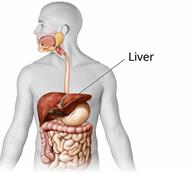Hepatitis A: What to Know

Hepatitis A is a liver infection that's caused by a germ, also called a virus. The germ can spread from person to person. This means it's contagious.
The infection causes irritation and swelling in the liver. It's usually mild, and the person recovers fully.
What are the causes?
This condition is caused by a germ. Most often, people get the germ from eating or drinking something with the germ in it.
The germ doesn't spread when a person sneezes or coughs.
What increases the risk?
You're more likely to get hepatitis A if:
You use illegal drugs.
You can't get clean water or food.
You live with or have close contact with a person who has hepatitis A.
You work at a day care or nursing home where you may touch poop.
You have HIV, AIDS, or long-term liver disease.
You live in or travel to countries where this infection is common.
You're a male who has sex with other males.
You have a bleeding disorder.
What are the signs or symptoms?
-
Not wanting to eat as much as normal.
-
A fever.
-
Feeling tired.
-
Throwing up or feeling like you may throw up.
-
Belly pain or joint pain.
-
Dark yellow pee (urine), light-colored poop, or both.
-
Jaundice. This is when your skin or the white parts of your eyes turn yellow.
-
Itchy skin.
Often, there are no symptoms.
How is this diagnosed?
This condition is diagnosed based on:
A physical exam.
Your medical history.
Blood tests.
How is this treated?
If you've been exposed to the germ, your health care provider may want you to get one of these:
The hepatitis A shot. Even if you got this vaccine as a child, a booster shot may help.
Human immunoglobulin. This fights germs in the body.
This condition usually goes away on its own. There's no specific treatment for this infection.
Severe cases are rare. If your illness is severe, you may need hospital care.
Follow these instructions at home:
Medicines
Activity
-
Rest as needed.
-
Use a condom every time you have vaginal, oral, or anal sex.
-
Ask what things are safe for you to do at home. Ask when you can go back to work or school.
-
Avoid swimming and using hot tubs until your provider says it's OK.
Eating and drinking
General instructions
To learn more, go to these websites:
- Centers for Disease Control and Prevention at cdc.gov. Then:
Click "Search" and type "hepatitis A."
Find the link you need.
Contact a health care provider if:
-
Your symptoms get worse.
-
You have new symptoms.
This information is not intended to replace advice given to you by your health care provider. Make sure you discuss any questions you have with your health care provider.
